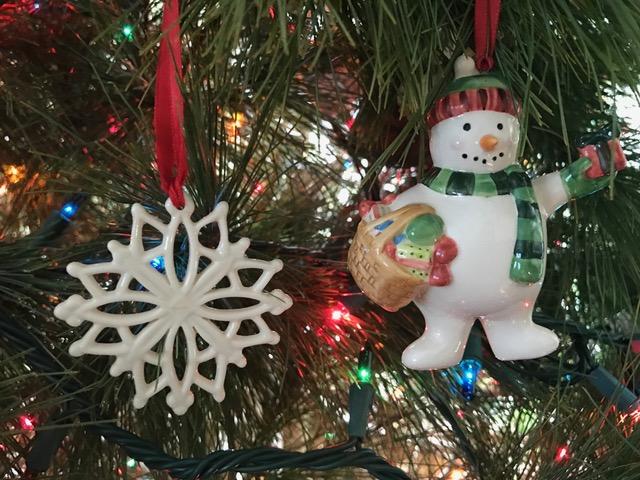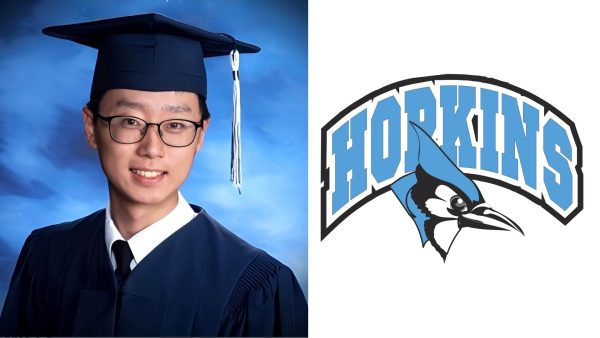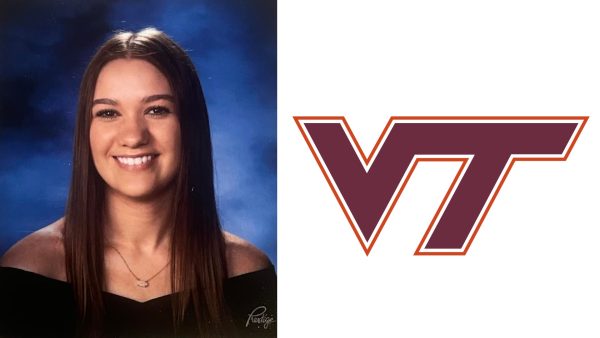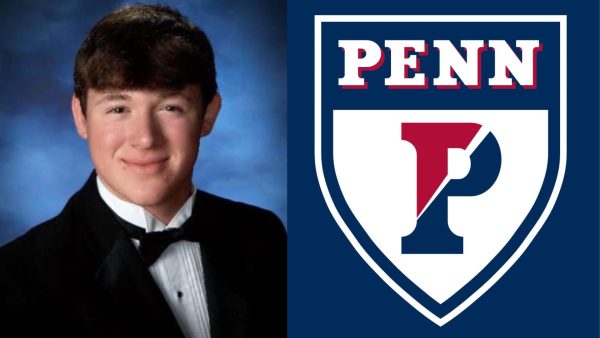The Holiday Season at North Penn High School
The holiday season is recognized as “the most wonderful time of the year,” but what exactly makes it so wonderful? The different holidays have unique traditions that fill people with joy and make these cold months feel a lot warmer. One of North Penn’s many gifts is its diversity; during the holiday season, we can appreciate the different cultures and religions that come to make up our community and educate others on the different ways to celebrate in December.
Christmas
One of the most widely celebrated holidays in our community is Christmas. Christmas is used to commemorate the birth of Jesus Christ amongst Christians. North Penn student, Abigail Cataldi, spends December preparing for Christmas with her friends and family.
“During the holidays, we are celebrating the birth of Jesus Christ, who represents a savior to us, so it’s all about his birthday. Throughout the regular year, we go to church on Sundays and worship. A church service looks like worship and a sermon, but during the holiday season, we do something special; we light candles each Sunday of December leading up to Christmas to celebrate the birth of Jesus Christ,” Cataldi explained. “Throughout the school year, it’s more about your personal journey with God, and Christmas is based around celebrating with everyone.”
For most, Christmas festivities take place over the course of two days, Christmas Eve. and Christmas Day. Many Christians chose to spend their days honoring their savior by cooking special meals, opening gifts, spending time with family and friends, and attending church services. Many families created traditions over the years that bring a lifetime of memories and joy that will follow the holiday.
“On Christmas Eve, we go to a church service at night, and this is where we celebrate the true meaning of Christmas. We all come together as a church community and light candles,” Cataldi remarked. “On Christmas morning, we all open presents together, which I feel is a really intimate time for my immediate family. My mom cooks a big breakfast, and we spend the day relaxing.”
Christianity has many different layers and branches, but one fantastic thing about the religion is that it is easy to get involved or learn about it in depth. Many think you have to be part of a religion to learn or celebrate. Still, there are many ways to incorporate yourself into the celebrations if you need help figuring out where to start.
“I am part of the Emmanuel Church of the Nazarene, which has the best youth group. The youth group is open to absolutely everyone; you don’t even have to go to church there. You can always come to my youth group; you’re always welcome there,” Cataldi said. “You don’t necessarily have to be a Christian to learn about Christianity; I just think that it’s important to try to be educated. I think that it can change lives. I would love for people to come up to me and talk about my faith with me. I feel like that is something that this school lacks in a way, and it would make my day if someone asked me about my faith; I will never turn down a question.”
Hanukkah
Hanukkah is another holiday celebrated in December, worshiped by people of the Jewish religion. Hanukkah marks the remembrance of an event that changed the course of Judaism and how it is viewed today. President of the Jewish cultural club, Daniel Katz, enjoys his Hanukkah with his family and friends over the eight days through praying, delicious foods, and surrounding himself with the people he loves.
“Both of my parents are Jewish, so my whole life, I’ve been immersed in Jewish culture and Judaism as a whole, and it’s a really positive space to be in and learn about. Normally with my mom’s side of the family, we’ll get to do something together, and I don’t usually get to see them all at once, just because we aren’t always that close, but this time brings us all together,” Katz explained. “People often say, ‘It’s just Jewish Christmas, right?’ and the answer is, kind of just because it’s a gift-giving holiday in the winter. Still, besides that, it’s not very comparable just because I feel like there’s more of a story related to Hanukkah than I know about Christmas. The story is about perseverance and triumph, good versus evil.”
Hanukkah is celebrated over eight days because the miracle of one night’s worth of oil lasted the Jewish people eight days. The actual story of why Hanukkah is celebrated dates back thousands of years. The fascinating history brings people of the religion together for just over a week in December to rejoice and celebrate in each other’s company.
“In the second century B.C.E essentially Jerusalem was under Greek and Syrian rule, and the occupants of the land didn’t want the Jewish people to practice their religion, so they had to do it in secret, and that’s actually where the dreidel comes from, people hiding would hide and learn Torah together,” Katz remarked. “The actual miracle of Hanukkah, which is why it’s also known as the festival of lights, is that they didn’t have enough oil to keep their menorah lit which had seven branches to count the days of the week out and it stayed lit for eight days even though it only had enough oil for one day which is why we light eight candles for Hanukkah.”
To learn more about Hanukkah, Judaism, or any other holidays celebrated within the religion, North Penn offers various clubs and learning opportunities. As President of the Jewish cultural club, Katz helps many students learn about Jewish religion and culture and how they can involve themselves.
“So every month, the Jewish cultural club meets, and at the beginning of each meeting, I’ll normally give a quick little presentation about whatever our theme is. Our first meeting was Roshahsanua, the Jewish New Year, and our one for December is Hanukkah. The club is open to everyone who wants to join,” Katz explained.
Kwanzaa
Kwanzaa is a holiday unlike Christmas or Hanukkah because it is celebrated within a culture rather than a religion. Kwanzaa is celebrated to commemorate African American culture. It incorporates seven different values observed from December 26th to January 1st and reflects on the past year while also bringing new goals for the upcoming year.
“Kwanzaa was created in 1966, so it’s a relatively new holiday compared to something like Christmas or Hanukkah. Basically, Kwanzaa is a celebration for African American people of many guiding principles based on their African roots to help them celebrate ideas that are essential to African Americans. This holiday was created in a time of a lot of social unrest during the civil rights movements, so there was an idea that this was something that African Americans could rally around,” History teacher Steven Roberts explained.
Kwanzaa is based on seven guiding principles called the Nguzo Saba and each day is dedicated to one of these principles. Umoja, Kujichagulia, Ujima, Ujamaa, Nia, Kuumba, and Imani are all representative of the different guiding traits that Kwanzaa celebrates. Each principle reflects something that can be helpful when looking back on the past year and looking forward to the start of a new one with traits such as unity, self-determination, building the community as a whole, profiting from cooperative economics, purpose, creativity, and faith.
“So this holiday isn’t about giving gifts and receiving gifts; it’s not like Christmas in that sense. It’s more like a celebration of values and traditional ideals that will help you build and maintain the community and pride within it.”
The celebration of Kwanzaa is represented differently in every household. The focus of Kwanzaa is based on community and togetherness between friends and family. By celebrating together, Roberts’ family created a bond and yearly tradition to help shape their futures.
“So Kwanzaa was a celebration that we always celebrated when I was growing up. Kwanzaa starts the day after Christmas, on December 26th, and goes until January 1st, so it’s a way to bring in the New Year. What we would always do is, with Kwanzaa, a few essential pieces are necessary. There is a candle holder that is called a Kinara. With that, there are green, black, and red candles that signify various things within the holiday but also to African American People overall. After Christmas, we would also set up the Kwanzaa stuff in celebration of the first fruits, so we had various produce and goods set up around the table. We would go through the seven principles involved in Kwanzaa and talk about how we can apply them to ourselves. On the last day, we would have a large community celebration which included a lot of family and friends that would come in for this celebration of Kwanzaa and its principles,” Roberts shared.
Community members of all races, religions, and cultures can indulge themselves in this holiday and learn more through the resources provided within Lansdale and the North Penn High School community. Our community becomes more inclusive and welcoming by teaching each other how to celebrate the holidays.
“I think that Kwanzaa is an important holiday because I think that it’s something that everyone can celebrate; the principles that are used are something that can be applied to many people’s lives, not just a small fraction of the population,” Roberts concluded. “There are a lot of resources out there about Kwanzaa. One of the easiest things you can do is Google information. The national museum of African American history, one of the Smithsonian museums, is a large website with information about Kwanzaa. You can also talk to people who might celebrate the holiday throughout the school or even within your local community. Several people in the community might celebrate it.”












